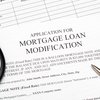The Hidden Costs of Buying a Home You Must Be Aware Of

New homebuyers often realize the true cost of buying a home too late. The most significant difference in transitioning from renting a home to owning one is the cost of monthly mortgage repayments. However, it may be a surprising fact (if not a shock) that how much you will have to pay as a deposit towards your home.
Apart from these two obvious monetary expenses, there are several other hidden costs that you must be aware of when buying a home. Knowing these potential expenses will help you prepare before you seal the deal on that new dream home. In rare instances, you may be able to convince your lender and/or broker to waive some of these costs.
15 Hidden Costs of Buying a Home
Your home price is the main chunk of how much you need when applying for a mortgage. However, some specific procedures and steps may cost you an additional amount. Not knowing these costs may throw your entire home-buying budget off balance. So without further ado, let us dive right in and explore these costs one by one.
Appraisal Fee
An appraisal is an evaluation of what is the current market value of the property you wish to buy. This will help the lender know that the mortgage you are applying for is for the legit price. A home appraisal in Canada may cost you somewhere from $275 to $500.
That said, the price may vary depending on the type of home you are buying and its location. You can check with the lenders if they will be willing to waive off the appraisal fee.
Deposit
Your home deposit usually accounts for 5 percent of the total price of the home you wish to buy. However, this may vary by the area, and you will have to make a deposit in the home seller’s account within 24 hours of them accepting your offer. When you finalize the home deal, this deposit goes towards the total price of your home, i.e., you only pay the remaining amount.
While paying this amount before you can get a mortgage or start living in a house is undoubtedly a substantial financial expense, it does offer an advantage. Paying a deposit will reduce your overall amount, and you have a lesser amount to pay interest on.
Home Inspection Fee
A home inspection fee can cost you up to $1,000. However, this is nothing compared to what you may have to pay for repairs once you have bought the house. Therefore, investing in a pre-sale inspection of the house makes sense.
The cost may vary by the size and type of the property. In some cases, your mortgage lender may require you to carry out the home inspection before the approval of your application. They just want to ensure that you are getting the amount equivalent to what the house is worth and nothing more. Plus, the structural integrity of your new home will also ensure that lender’s investment is safe.
The home inspection usually covers the following areas.
- Electrical systems
- Air-conditioning and heating systems
- Plumbing
- Walls, floors, and ceilings
- Roof
- Basement
- The exterior structure of the home
Home Insurance
Home insurance is one of the mandatory costs of buying a home. Most lenders will ask for proof of home insurance before offering you a mortgage. This ensures that the property you wish to buy has protection against any or all potential damages and threats. Home insurance also gives lenders the surety that their investment will be safe.
Once again, the cost of home insurance may vary based on your home’s location, personal details, amount of coverage, and features you would like to avail. For example, do you only wish home insurance on certain appliances? or do you want to cover your home against fire, theft, vandalism, etc.?
The more features you add, the higher your home insurance cost will be. However, if your area experiences extreme weather, it is best to get a comprehensive home insurance coverage as possible. It is always a good idea to search for home insurance companies in your area and compare their prices to get the best deal at an affordable price.
Land Transfer Tax (LTT)
In Canada, whenever you buy a new home, you will have to pay a land transfer tax (LTT) . You pay the LTT to the territory or province where you are buying a home. However, this tax amount may vary by state and cost you somewhere around 0.5 to 2.5 percent of your home’s total value.
Most provinces operate on a multi-tiered tax system to calculate your land transfer tax , except Toronto, as they have a municipal LTT. For the rest of the provinces, you have a fixed band of taxes on specific price brackets.
For instance, if you are buying a home worth $55,000, you will pay 0.5% LTT, whereas you will pay a 1% LTT on a home worth $95,000. If you are buying a $150,000 property, your LTT will increase 1.5%, and you will pay 2% LTT for purchasing a home worth more than $400,000.
Good news, if you buy a home in Alberta, Yukon, Saskatchewan, and Nunavut. They do not charge any land transfer tax. All you have to pay is a nominal transfer fee.
Land Survey
The land survey refers to the evaluation of your new home’s boundaries. In some cases, you can save money if the home seller already has a land survey report. However, the lender may or may not accept the land survey report if it is too old.
A land survey can potentially cost you between $1,000 and $2,000. A quick tip, though; any season is best for land survey other than winter. A land survey cost is higher during this time of the year.
Legal Fee
No matter what type of property you buy or where you buy it, there will be a legal process involving many paperwork. For this, you will have to hire a real estate lawyer. This is necessary because you probably are not aware of all legal requirements. A lawyer will review all documents, including mortgage papers, purchase agreement, and history of claims on the house you wish to buy.
These legal charges may cost you between $900 and $2,000. It is an understood fact that hiring a lawyer in urban areas will cost you more than in rural areas. On top of the lawyer’s service fee, you will have to pay an HST or GST fee.
Mortgage Default or CMHC Insurance
If you cannot afford a 20% down payment on your mortgage, you will have to buy mortgage default insurance. This may cost you between 2.8% to 4% of your mortgage’s total value. You can apply for mortgage default insurance from Canada Mortgage and Housing Corporation (CMHC) , also known as Canada Guaranty.
The purpose of buying this insurance is for the lender’s advantage. This ensures your bank or lender that they will receive their investment back in case you are unable to make mortgage payments at all. The lower your down payment, the higher your premium for the CMHC insurance plan.
Moving Costs
Buying a new home in a different area or province comes with the compulsory cost of moving your assets. However, this cost varies based on the quantity of things you need to move and the distance. You can either hire a mover’s company or do it yourself. Either way, this is going to cost you some money.
Moving all by yourself can actually help you save a decent amount of money. You can rent a small truck, use free boxes from work, or ask family and friends to give you any spare ones. You can also ask them to help you out with packing to keep the costs down.
Mortgage Life Insurance
This is a variable cost, and the lender offers you an option to purchase a mortgage life insurance when offering you the loan. This life insurance is equal to the remaining amount you owe to the lender, but this is not the same as mortgage default insurance.
A mortgage life insurance protects your loved ones in case of your demise. The insurance company will clear all your mortgage amount by paying the lender, and your family will get to keep the house without having to pay anything out of pocket.
However, your family will not receive any monetary funds from this insurance policy. This is just insurance to cover your mortgage, nothing else. The reason why this mortgage insurance cost varies is that the amount insured declines every month or whenever you make a mortgage payment.
For example, you took out a $300,000 mortgage and paid $1,000 towards your mortgage every month. So the first month, your insurance will cover you for $300,000, the second month for $299,000, the third month for $298,000, and so on.
In simpler terms, a mortgage life insurance will start with your mortgage plan and cover only the remaining amount after every month’s payment. However, this is not mandatory, and you can opt to buy a life insurance plan as it is far cheaper and guarantees a certain payout to your loved ones in case of your death.
Purchasing New Home Warranties
Are you planning to purchase a brand new home, and by brand new, we mean a newly built home? In that case, you will probably need to buy a home warranty. If you are planning to buy a brand new home in Quebec, Ontario, or British Columbia, purchasing these home warranties is mandatory.
The idea behind the warranty is to allow you to cover any defects in the home structure. It is usually the builder who pays home warranties and charges you for it later. However, home warranties may cost you as low as $350.
Repair and Renovation Costs
While everything may look absolutely immaculate during the home tour, you must anticipate some level of repair and renovation when you move in. For instance, you may need new appliances or carry out any repairs and renovations sooner than you think.
Similarly, you may want to improve the landscape to boost your home’s curb appeal. If you are moving during the winter season, you will most likely have to hire a snow clearing service or equipment.
Sales Tax
Harmonized Sales Tax (HST) or commonly known as GST, is one of the mandatory costs of buying a home in Canada. Not just your home price, you have to pay sales tax on all services involved in the purchasing process of the new house. These include lawyer fees, home inspection fees, real estate agent’s commission, etc.
Things are a bit gloomier if you live in Quebec and wish to purchase a property in the province. This is because you will have to pay a provincial sales tax on top of your HST/GST, adding 15% more cost to your home’s purchase price.
If you are buying a newly built house, you may qualify for HST/GST new housing refund (only applicable in Quebec). That said, you do not have to pay any sales tax when buying a previously owned property.
Title Insurance
Title insurance may cost you between $180 and $325. The cost varies by the province in Canada, depending on if you are buying a newly built home or a resale property. Lenders across the country will ask you to purchase title insurance. This will help protect you from any title errors existing in public registries or surveys.
Most importantly, title insurance also protects you from
- any heir trying to claim that the home you bought belongs to them
- fraudulently discharged mortgages
Unpaid Bills and Taxes
This can be a nuisance you can easily avoid by being a bit diligent. Sometimes, the previous homeowners sell the house without clearing their utility bills and taxes. In this case, you, as a new homeowner, will have to clear all the dues to start afresh.
On the other hand, you may have to pay the previous homeowners any taxes and utility bills they paid for beyond the closing date. These include hydro, water, and property taxes and known as adjustments. The idea is to ensure that the previous and new homeowners only pay for the time period they owned the home.
Save Money as a First-time Homebuyer
If you are a first-time homebuyer in Canada , the government offers several incentive programs to assist you in getting on the homeowner’s ladder. These are
HBP – The Homebuyer Plan
You can withdraw up to $60,000 from your RRSP to buy a home. If you are buying a home with a partner, you can both withdraw up to $60,000 each. This means you get the help of a total of $120,000 to purchase a new home.
HBA - Home Buyer Amount
This incentive was previously known as first-time homebuyer’s tax credit (HBTC). This is a non-refundable tax credit for new homebuyers. In 2020 at a 15% tax credit rate, a homebuyer could get $750.
FTHBI - First-Time Homebuyer Incentive
This grant allows young Canadians to buy their very first dwelling. The government contributes approximately 5 to 10 percent towards your home’s cost in exchange for 5 to 10 percent equity in your home.





